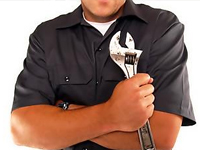Slab Leak Troubleshooting

How to Determine if Your Home Has a Slab Leak
Slab leaks can disrupt the daily life of any homeowner. It’s not easy to know what
is going on with every inch of pipe that runs through your home. The key is to learn
how to identify slab leak symptoms as quickly as possible. When you know what to
look for, you will be able to react quickly and reduce the impact of water damage.
Slab Leaks Can Cause Water on Floors
Visible leaking water is a sure sign that something is wrong within the system.
If you notice water pooling on floors where it should not be, you may have a slab
leak. The amount of water you see may vary. Smaller openings will allow less water
to escape, which could create a tiny trickle while a significant crack or hole will
produce a much larger puddle.
It is important to keep in mind that just because the amount of water appears minimal
doesn’t mean that the slab leak is insignificant. Even a tiny quantity of standing
water can cause severe damage, especially if it is allowed to remain for long periods.
The part of the slab leak that you cannot see should also be considered. The small
amount of water you find could be only part of the larger quantity sitting quietly
behind walls or under floors.
High Water Bills Could Mean Slab Leaks in Your Home
Every homeowner should monitor the cost of their utilities – especially the water
bill. If you notice your bill has increased recently for no reason, this could be
an indication that you have water leaks. Pay attention to your household’s water
usage. Did you recently fill up a swimming pool or use a higher than usual amount
of water or is there no reason your consumption should soar?
A slab leak can cause your home to lose water in places you cannot see without removing
concrete. If your plumbing is old, it could potentially be suffering from leaking
water in multiple locations. The problem won’t go away on its own. Inland Empire
Plumbing can evaluate the situation and determine if you need a leak fix.
Slab Leaks Make Hot Spots
A hot spot on your floor could mean that water is leaking underneath. Slab leaks
sometimes generate warm spots on floor surfaces. Try walking across your floor without
shoes on. If you notice an unexplained change in temperature, it may be time to
call a plumber.
You may not see a single drop of water on any floor in your home and still have
slab leaks. Depending on where the pipe damage has occurred, the water could be
pooling in an out of the way place within or under the foundation.
Don’t Let Mold Thrive On Slab Leaks
Mold loves leaking water. The presence of mold and moisture is another indication
that a problem exists somewhere along the water lines. A professional water leak
inspection is the best way to determine if you have a slab leak and how to fix it.